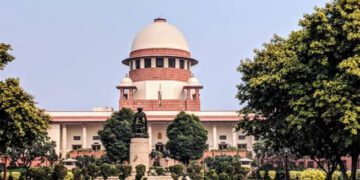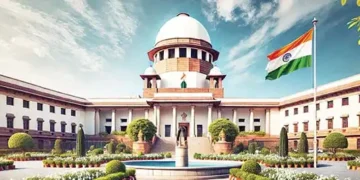Blitz Bureau
The Supreme Court has ruled that residence-based reservation in Post Graduate (PG) medical courses under state quota is constitutionally invalid.
A Bench, headed by Justice Hrishikesh Roy, on January 29 said that providing for domicile or residence-based reservation in PG medical courses is constitutionally impermissible and cannot be done as such reservation runs counter to the idea of citizenship and equality under the Constitution.
It clarified that institutional preference or reservations to a reasonable extent permissible under the Constitution in UG courses, yet reservation in PG medical courses and other higher learning courses, on the basis of ‘residence’ violates Article 14 of the Constitution.
“We must also remember that, to a reasonable degree, residencebased reservation in a state is permissible for MBBS course, but the same reservation for PG courses is not permissible,” added the Bench, also comprising Justices Sudhanshu Dhulia and SVN Bhatti. It referred to previous decisions of the apex court, where it was held that at the PG level, merit cannot be compromised, although residencebased reservation can be permissible to a certain degree in UG or MBBS courses.
In Chandigarh’s Government Medical College and Hospital, 64 PG medical seats falling under the state quota were reserved either for the ‘residents’ of Chandigarh or for those who have done their MBBS from the same college.
The prospectus provided a very wide definition of ‘residents’ of Chandigarh and even included a person who studied in Chandigarh at any time for 5 years or the children of parents who had property in the Union Territory for a period of 5 years at any point of time.
After several petitions were filed before the Punjab and Haryana High Court challenging this residence-based reservation, the high court held that the reservation was given on the basis of a long-discarded principle of domicile or residence and was bad in law. Upholding the decision, the Supreme Court said: “We are all domiciled in the territory of India. We are all residents of India. Our common bond as citizens and residents of one country gives us the right not only to choose our residence anywhere in India, but also gives us the right to carry on trade; business or a profession anywhere in India. It also gives us the right to seek admission in educational institutions across India.”
“If such a reservation is permitted then it would be an invasion on the fundamental rights of several students, who are being treated unequally simply for the reasons that they belong to a different state in the Union! This would be a violation of the equality clause in Article 14 of the Constitution and would amount to a denial of equality before the law,” the top court added.
































